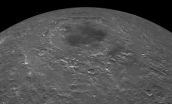(Press-News.org) New research paves the way for the development of a vaccine for the Tasmanian devil, currently on the brink of extinction because of a contagious cancer.
It has been less than two decades since scientists discovered the contagious cancer devil facial tumour disease (DFTD) which causes 100 per cent mortality in the endangered marsupials. The facial cancer, which spreads when the devils bite each other's faces during fighting, kills its victims in a matter of months. As it has already wiped out the majority of the population with sightings of devils reduced by 85 per cent, scientists are desperate to find out more about the mysterious cancer which somehow manages to evade the devils' immune system.
Until now, scientists have believed that the tumours were able to avoid detection by the immune system because the Tasmanian devils have very little genetic diversity (preventing the immune system from recognising the tumour as foreign). However, a University of Cambridge led collaboration with the Universities of Tasmania, Sydney and South Denmark has discovered that the explanation is more complex.
On the surface of nearly every mammalian cell are major histocompatibility complex (MHC) molecules. These molecules enable the immune system to determine if a cell is friend or foe, triggering an immune response if the cell is foreign and a potential threat. The new research, published today, 11 March, in the journal PNAS, reveals that DFTD cancer cells lack these critical molecules, thereby avoiding detection by the devils' immune system.
Professor Jim Kaufman, from the University of Cambridge's Department of Pathology, said: "Once it was found that the cancer was escaping from the devils' immune system, scientists needed to figure out how."
The researchers found that the DFTD cells have lost the expression of MHC molecules, but that the genes that code for these molecules are still intact. This means that these genes could potentially be turned back on. Indeed, the scientists showed that by introducing signalling molecules such as interferon-gamma, a protein which triggers the immune response, the DFTD cells can be forced to express MHC molecules.
Dr Hannah Siddle, lead author of the paper from the University of Cambridge, said: "Developing a vaccine based on our research could tip the balance in the favour of the devil and give them a fighting chance."
"However, we still face some hurdles. The tumour is evolving over time and any vaccine programme would have to take this into consideration. Also, because of the difficulties of vaccinating a wild population, it may be more efficient to use a vaccine in the context of returning captive devils to the wild."
Although the only other contagious cancer has been found in dogs (canine transmissible venereal cancer), the rapid development of DFTD highlights how quickly they can emerge.
Professor Kaufman added: "Our study has implications beyond the Tasmanian devil. Sooner or later a human strain of contagious cancer will develop, and this work gives us insight into how these diseases emerge and evolve."
### The research was funded by the Wellcome Trust.
For additional information please contact:
Genevieve Maul, Office of Communications, University of Cambridge
Tel: direct, +44 (0) 1223 765542, +44 (0) 1223 332300
Mob: +44 (0) 7774 017464
Email: Genevieve.maul@admin.cam.ac.uk
Notes to editors:
1. The paper 'Reversible epigenetic down-regulation of MHC molecules by devil facial tumour disease' will be published in the 11 March edition of PNAS.
2. Images and video are available from the following website:
https://picasaweb.google.com/100113643990790184358/TasmanianDevils?authuser=0&authkey=Gv1sRgCMyHpquclbTCOA&feat=directlink
3. University of Cambridge: The University of Cambridge's mission is to contribute to society through the pursuit of education, learning and research at the highest international levels of excellence.
Cambridge's reputation for excellence is known internationally and reflects the scholastic achievements of its academics and students, as well as the world-class original research carried out by its staff. Some of the most significant scientific breakthroughs occurred at the University, including the splitting of the atom, invention of the jet engine and the discoveries of stem cells, plate tectonics, pulsars and the structure of DNA. From Isaac Newton to Stephen Hawking, the University has nurtured some of history's greatest minds and has produced more Nobel Prize winners than any other UK institution with over 80 laureates.
4. The University of Tasmania is the fourth oldest university in Australia, established in 1890. Ranked in the top 3 per cent of universities globally and in the top 10 Australian research universities, the University has a long-standing reputation for excellence in learning, teaching and research. In 2015, UTAS will celebrate 125 years of achievement and contribution to Tasmania, Australia and the global community.
5. Save the Tasmanian Devil Program: The Save the Tasmanian Devil Program is the official response to the threat of DFTD to the survival of the Tasmanian devil, and is a joint initiative of the Australian and Tasmanian Governments. Its mission is to ensure the survival of the Tasmanian devil as an ecologically functioning entity in the Tasmanian ecology.
The Program is encouraged by the results of the study by Hannah V. Siddle et al, which show how the tumour cells evade detection by the devils' immune system. In the long-term, these results may be a vital pre-cursor to the development of a vaccine for the devil against the deadly cancer.
In the meantime, the Save the Tasmanian Devil Program has established an insurance population of over 500 disease free devils in captive breeding facilities throughout Australia to prevent the species' extinction. The Program is also working on establishing populations of healthy wild devils in large areas of natural habitat in Tasmania, like islands and peninsulas that can be isolated from diseased devils to ensure the survival of the species in the wild.
For further information please go to http://www.tassiedevil.com.au
6. The University of Sydney is a leading, comprehensive research and teaching university committed to the transformative power of education and to teaching greater knowledge and understanding of the world and its people. It aims to create and sustain a community in which – for the benefit of both Australia and the wider world – the brightest researchers and the most promising students, whatever their social or cultural background, can thrive and realise their full potential.
7. Menzies Research Institute Tasmania, an institute of the University of Tasmania, is one of Australia's leading health and medical research institutes.Menzies is renowned internationally for its innovative research that utilises the unique competitive advantages Tasmania offers, including our island geography, stable population and our extensive genealogical records.
For over 25 years, significant breakthroughs have been made by Menzies scientists in the understanding, prevention and treatment of a number of diseases.
Menzies focuses on a range of common diseases within Tasmania including arthritis, cancer, dementia, diabetes, cardiovascular disease, mental health and multiple sclerosis.
For further information please go to http://www.menxies.utas.edu.au
Hope for threatened Tasmanian devils
Research paves way for the development of a vaccine for the contagious cancer which is driving Tasmanian devils to the brink of extinction
2013-03-12
ELSE PRESS RELEASES FROM THIS DATE:
New checklist brings information about Cucurbitaceae up to date
2013-03-12
In 2010, it was shown that melons and cucumbers can be traced back to India. Because of the importance of the region for an understanding of Cucurbitaceae evolution and diversity, a new checklist of the Cucurbitaceae of India was produced to update the information on that family. The study was published in the open access journal PhytoKeys.
Vegetables are essential components of a healthy daily diet, not just in India but around the globe. Compared to grains and pulses, however, vegetables are under-investigated taxonomically, and information on their genome is scarce. ...
Changes needed to improve in-hospital cardiac arrest care, survival
2013-03-12
Policy and practice changes by healthcare institutions, providers and others could greatly improve medical care and improve survival for people who have a sudden cardiac arrest in the hospital, according to an American Heart Association consensus statement in its journal, Circulation.
Each year, more than 200,000 adults and 6,000 children have in-hospital cardiac arrests, and survival has remained essentially unchanged for decades, statement authors said. According to the American Heart Association, only 24.2 percent of in-hospital cardiac arrest patients survive to hospital ...
Regenstrief and IU study investigates older adults' views on cancer screening
2013-03-12
INDIANAPOLIS -- A study from the Regenstrief Institute and the Indiana University Center for Aging Research has found that many older adults are hesitant to halt cancer screenings even when the screenings may no longer be beneficial or may even be potentially harmful. The study is among the first to explore older adults' perceptions of recommendations to halt screenings for breast, prostate, colon and other cancers as they age.
"Older Adults and Forgoing Cancer Screening: 'I think it would be strange'" was published Online First by JAMA Internal Medicine. "I think it ...
Analysis of ASCO's QOPI® data finds significant improvement in performance on metrics for quality oncology care
2013-03-12
In this News Digest:
Summary of a study being published online March 11, 2013, in the Journal of Clinical Oncology, analyzing self-reported data from 156 outpatient oncology practices participating in the American Society of Clinical Oncology's Quality Oncology Practice Initiative (QOPI®) showing significant improvements in performance on certain measures for quality oncology cancer care over a four-year period.
Overall, mean normalized performance scores from participating practices rose from 71 to 85 percent between 2006 and 2010; improvements were especially profound ...
Monsoon failure key to long droughts in Southwest
2013-03-12
Long-term droughts in the Southwestern North America often mean failure of both summer and winter rains, according to new tree-ring research from a University of Arizona-led team.
The finding contradicts the commonly held belief that a dry winter rainy season is generally followed by a wet monsoon season, and vice versa.
The new research shows that for the severe, multi-decadal droughts that occurred from 1539 to 2008, generally both winter and summer rains were sparse year after year.
"One of the big questions in drought studies is what prompts droughts to go ...
Lunar impacts created seas of molten rock, research shows
2013-03-12
PROVIDENCE, R.I. [Brown University] — Early in the Moon's history an ocean of molten rock covered its entire surface. As that lunar magma ocean cooled over millions of years, it differentiated to form the Moon's crust and mantle. But according to a new analysis by planetary scientists from Brown University, this wasn't the last time the Moon's surface was melted on a massive scale.
The research, led by graduate student William Vaughan, shows that the impact event that formed the Orientale basin on the Moon's western edge and far side produced a sea of melted rock 220 ...
Remote clouds responsible for climate models' glitch in tropical rainfall
2013-03-12
It seems counterintuitive that clouds over the Southern Ocean, which circles Antarctica, would cause rain in Zambia or the tropical island of Java. But new research finds that one of the most persistent biases in global climate models – a phantom band of rainfall just south of the equator that does not occur in reality – is caused by poor simulation of the cloud cover thousands of miles farther to the south.
University of Washington atmospheric scientists hope their results help explain why global climate models mistakenly duplicate the inter-tropical convergence zone, ...
Long-suspected cause of blindness from eye disease disproved
2013-03-12
(SALT LAKE CITY)—Vision scientists long have thought that lack of very long chain fatty acids in photoreceptor cells caused blindness in children with Stargardt type 3 retinal degeneration, an incurable eye disease. But researchers at the University of Utah's John A. Moran Eye Center have shown in a new study that lack of these fatty acids does not cause blindness, meaning that the search for the mechanism that robs sight from children with the disease must start anew.
Researchers led by David Krizaj, Ph.D., associate professor of ophthalmology and visual sciences at ...
Common erectile dysfunction drug not helpful for heart failure patients, study finds
2013-03-12
SAN FRANCISCO -- A commonly used erectile dysfunction drug, sildenafil, doesn't help patients who have heart failure with preserved ejection fraction, a condition in which the heart's lower chambers are stiff and cannot relax and fill fully between beats. That is the finding of the RELAX study, presented today at the American College of Cardiology's 62nd Annual Scientific Session and simultaneously published in The Journal of the American Medical Association. The study's lead author called the results disappointing.
Sildenafil, a phosphodiesterase-5 inhibitor, had shown ...
Astronomers conduct first remote reconnaissance of another solar system
2013-03-12
Researchers have conducted a remote reconnaissance of a distant solar system with a new telescope imaging system that sifts through the blinding light of stars. Using a suite of high-tech instrumentation and software called Project 1640, the scientists collected the first chemical fingerprints, or spectra, of this system's four red exoplanets, which orbit a star 128 light years away from Earth. A detailed description of the planets—showing how drastically different they are from the known worlds in the universe—was accepted Friday for publication in The Astrophysical Journal. ...
LAST 30 PRESS RELEASES:
Bacteria frozen in ancient underground ice cave found to be resistant against 10 modern antibiotics
Rhododendron-derived drugs now made by bacteria
Admissions for child maltreatment decreased during first phase of COVID-19 pandemic, but ICU admissions increased later
Power in motion: transforming energy harvesting with gyroscopes
Ketamine high NOT related to treatment success for people with alcohol problems, study finds
1 in 6 Medicare beneficiaries depend on telehealth for key medical care
Maps can encourage home radon testing in the right settings
Exploring the link between hearing loss and cognitive decline
Machine learning tool can predict serious transplant complications months earlier
Prevalence of over-the-counter and prescription medication use in the US
US child mental health care need, unmet needs, and difficulty accessing services
Incidental rotator cuff abnormalities on magnetic resonance imaging
Sensing local fibers in pancreatic tumors, cancer cells ‘choose’ to either grow or tolerate treatment
Barriers to mental health care leave many children behind, new data cautions
Cancer and inflammation: immunologic interplay, translational advances, and clinical strategies
Bioactive polyphenolic compounds and in vitro anti-degenerative property-based pharmacological propensities of some promising germplasms of Amaranthus hypochondriacus L.
AI-powered companionship: PolyU interfaculty scholar harnesses music and empathetic speech in robots to combat loneliness
Antarctica sits above Earth’s strongest “gravity hole.” Now we know how it got that way
Haircare products made with botanicals protects strands, adds shine
Enhanced pulmonary nodule detection and classification using artificial intelligence on LIDC-IDRI data
Using NBA, study finds that pay differences among top performers can erode cooperation
Korea University, Stanford University, and IESGA launch Water Sustainability Index to combat ESG greenwashing
Molecular glue discovery: large scale instead of lucky strike
Insulin resistance predictor highlights cancer connection
Explaining next-generation solar cells
Slippery ions create a smoother path to blue energy
Magnetic resonance imaging opens the door to better treatments for underdiagnosed atypical Parkinsonisms
National poll finds gaps in community preparedness for teen cardiac emergencies
One strategy to block both drug-resistant bacteria and influenza: new broad-spectrum infection prevention approach validated
Survey: 3 in 4 skip physical therapy homework, stunting progress
[Press-News.org] Hope for threatened Tasmanian devilsResearch paves way for the development of a vaccine for the contagious cancer which is driving Tasmanian devils to the brink of extinction




